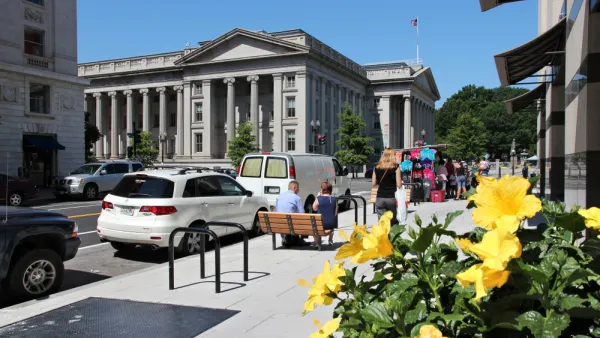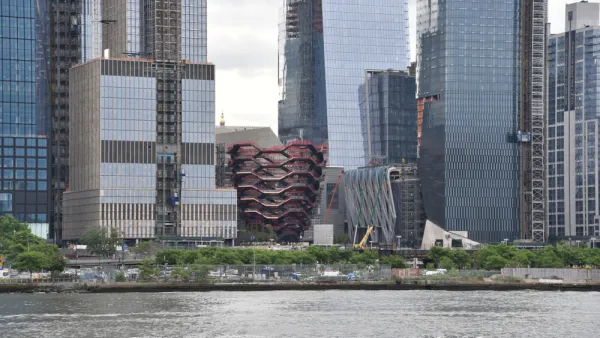Mobile broadband, government-sponsored cloud computing, smart devices - these are a few of the technologies that cities should be thinking about for the future, says the Institute for the Future in a new report.
Greg Lindsay of Fast Company looks at the Rockefeller Foundation-sponsored report, which is more than a gadget list. Called "The Future of Cities, Information, and Inclusion", it predicts a near-future struggle between haves and have-nots on the digital data divide.
From the IFTF's website: "Over the next decade, cities will continue to grow larger and more rapidly. At the same time, new technologies will unlock massive streams of data about cities and their residents. As these forces collide, they will turn every city into a unique civic laboratory-a place where technology is adapted in novel ways to meet local needs."
The technologies that matter, for better or worse, according to Fast Company:
"...mobile broadband; smart personal devices, whether they're dirt-cheap phones or tablets; government-sponsored cloud computing (modeled on the U.K.'s national "G-cloud" initiative); open-source public databases to promote grassroots innovation, and "public interfaces." Instead of Internet cafés, imagine an outdoor LED screen and hacked Kinect box allowing literally anyone to access the Net using only gestures."
FULL STORY: The Battle for Control of Smart Cities

National Parks Layoffs Will Cause Communities to Lose Billions
Thousands of essential park workers were laid off this week, just before the busy spring break season.

Retro-silient?: America’s First “Eco-burb,” The Woodlands Turns 50
A master-planned community north of Houston offers lessons on green infrastructure and resilient design, but falls short of its founder’s lofty affordability and walkability goals.

Delivering for America Plan Will Downgrade Mail Service in at Least 49.5 Percent of Zip Codes
Republican and Democrat lawmakers criticize the plan for its disproportionate negative impact on rural communities.

Test News Post 1
This is a summary

Test News Headline 46
Test for the image on the front page.

Balancing Bombs and Butterflies: How the National Guard Protects a Rare Species
The National Guard at Fort Indiantown Gap uses GIS technology and land management strategies to balance military training with conservation efforts, ensuring the survival of the rare eastern regal fritillary butterfly.
Urban Design for Planners 1: Software Tools
This six-course series explores essential urban design concepts using open source software and equips planners with the tools they need to participate fully in the urban design process.
Planning for Universal Design
Learn the tools for implementing Universal Design in planning regulations.
EMC Planning Group, Inc.
Planetizen
Planetizen
Mpact (formerly Rail~Volution)
Great Falls Development Authority, Inc.
HUDs Office of Policy Development and Research
NYU Wagner Graduate School of Public Service





























